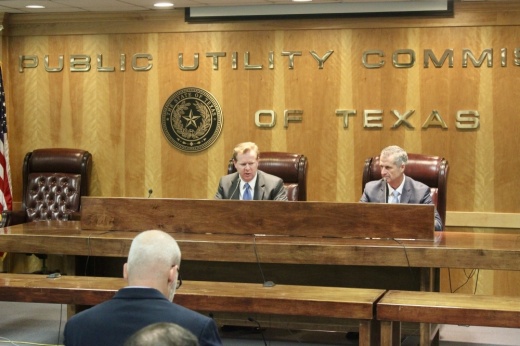Peter Lake, chair of the Public Utility Commission of Texas, and Brad Jones, interim president and CEO of the Electric Reliability Council of Texas, appeared together in Austin on July 22 to provide an update on the PUC's ongoing redesign of the Texas grid. The pair also said the grid is prepared for what could be an all-time seasonal demand record coming as soon as next week due both to heat and the state's increasing population with Jones saying ERCOT plans for "plenty of generation" to be available in the coming days.
“It’s going to be tight for the rest of the summer. We all know the heat is coming, but we’re ready for it. In the meantime, we will be redesigning the ERCOT market for the future so that Texas has a grid that reliably delivers affordable power," Lake said. "Overall, we’re in a good position. We have clear direction and a strong mandate from the Legislature and the governor; we have the tools we need to do the job; and we’ve got the support of stakeholders and industry participants across the board.”
Jones said next week's gridwide demand could eclipse 74,000 megawatts, near the summer record of 74,820 megawatts. ERCOT earlier this year had forecast and planned for a new seasonal record of more than 77,000 megawatts.
“As it stands today, looking at our conditions and what we expect to have next week, we expect to have a sufficient amount of generation to serve all Texans," Jones said.
'Doing business differently'
Through next week and beyond, Lake said the PUC—ERCOT's regulator—remains focused on "once-in-a-generation reforms" of the grid system, including a shift away from "crisis-based" management and toward further reliability. Lake recently said a top issue with the state's current grid structure is an incentive system that only rewards generators for production on the edge of crisis.
"That is not a good way to run a reliable grid. And so that’s why we’re redesigning the entire thing from scratch," Lake said. “The market needs and will receive a major overhaul. We absolutely must move away from the crisis-based business model. ... If these private companies are generating power in Texas, we want them to be paid for generating reliably and consistently without the grid having to get to crisis mode."
Lake said the PUC's overall market redesign should take form before the end of the year, if not sooner, although the full implementation of changes will stretch out over a longer time period.
While that broader process plays out, Jones and Lake also said regulators are working ahead on system weatherization to prepare generating facilities for seasonal extremes. That topic was a piece of the wide-ranging legislation related to grid oversight lawmakers passed this spring and is rolling out in two stages.
"The first phase is working with generators to account for the specific problems they had last winter and making sure those problems are fixed for the upcoming winter. The second phase will be a broader policy implementation that sets several levels of standards for weatherization resiliency that will be implemented more broadly over time," Lake said.
Jones also noted ERCOT, which does not typically take on weatherization checks in summer, has conducted 31 generation unit checks this season so far. He also said the agency is preparing to inspect every unit that experienced issues during February's Winter Storm Uri blackouts.
An investigation into more recent outages that led to a statewide call for energy conservation in June is ongoing as well. Although ERCOT has yet to determine the cause of those widespread issues, Jones said contributing factors may include lingering issues from the winter storm, a lack of financial incentives for maintenance and generators' smaller window for seasonal maintenance given rising year-round demands.
Alongside the PUC's redesign planning, ERCOT is also undergoing its own reliability-centered adjustments outlined in a 60-point road map released earlier this month. While acknowledging some public confidence must still be regained by both agencies through those processes, Lake promised "the lights are going to stay on" as the push toward additional financial and grid stability moves forward.
“The bottom line is we’re doing business differently," he said.





